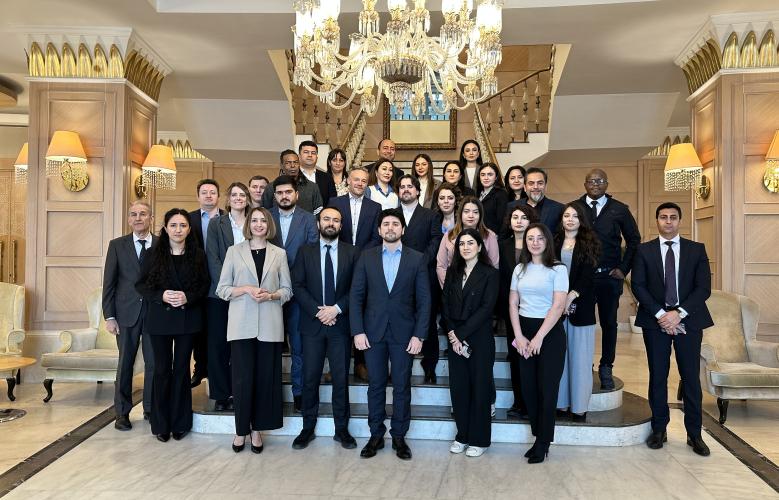9th of April, 2025 Baku, Azerbaijan: more than 35 participants from Azerbaijan, Georgia, Uruguay, South Africa, Turkmenistan, Türkiye and Seychelles gathered together to share their experiences on transparency systems. The main objective of the workshop is to facilitate the exchange of best practices and lessons learned in establishing transparency (MRV) systems, enabling countries to enhance their capacity for accurate climate reporting and accountability.
Other objectives of the event are: (i) to create a platform for sharing real-world examples, experiences, challenges, and solutions in establishing and maintaining online transparency (MRV) systems and digital spaces for climate reporting; (ii) to explore key methodologies, technologies, and institutional arrangements that contribute to the successful deployment and operation of MRV systems; (iii) to draw on lessons learned and outcomes from the current CBIT-1 projects to inform the design and development of future CBIT-2 projects, and to (iv) to promote peer learning and strengthen collaboration between countries and experts, fostering the development of transparent and accountable climate reporting systems.
Day 1 of the workshop was dedicated to the Exchange of Experience in Establishing the Institutional Arrangements and the Role of Transparency (MRV) Systems in Their Establishment. The experts from South Africa, Georgia, Türkiye and Uruguay shared their country case studies on secured resources needed to collect data and produce outputs (reports), engaging with the stakeholders, assuring QA/QC across thematic aspects of the transparency chapters, and the roles, which transparency (MRV) systems played in shaping effective institutional arrangements.
Note: This workshop is a collaborative effort of RECC Azerbaijan, CBIT-GSP and Aether UK and addresses the in-country request for support from Azerbaijan in co-organizing the peer-learning workshop on MRV systems with other countries across the world.
